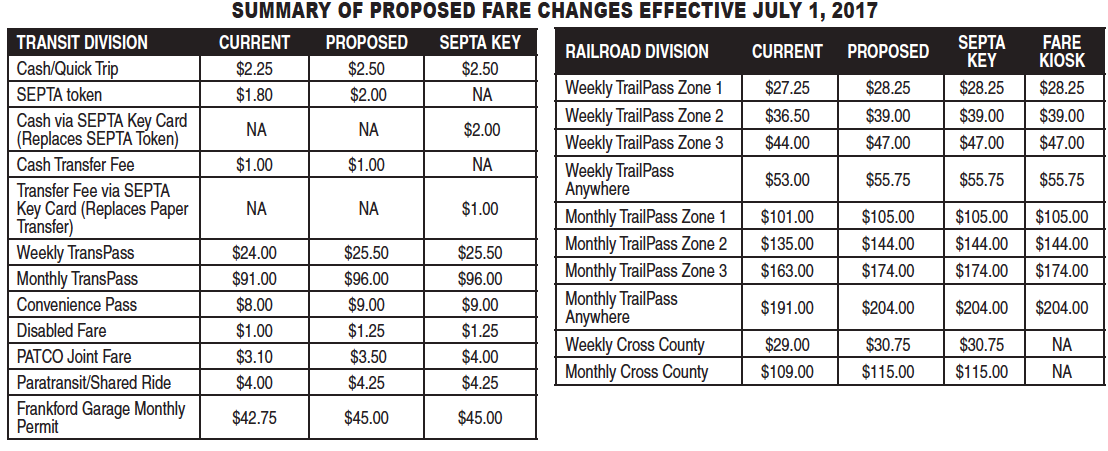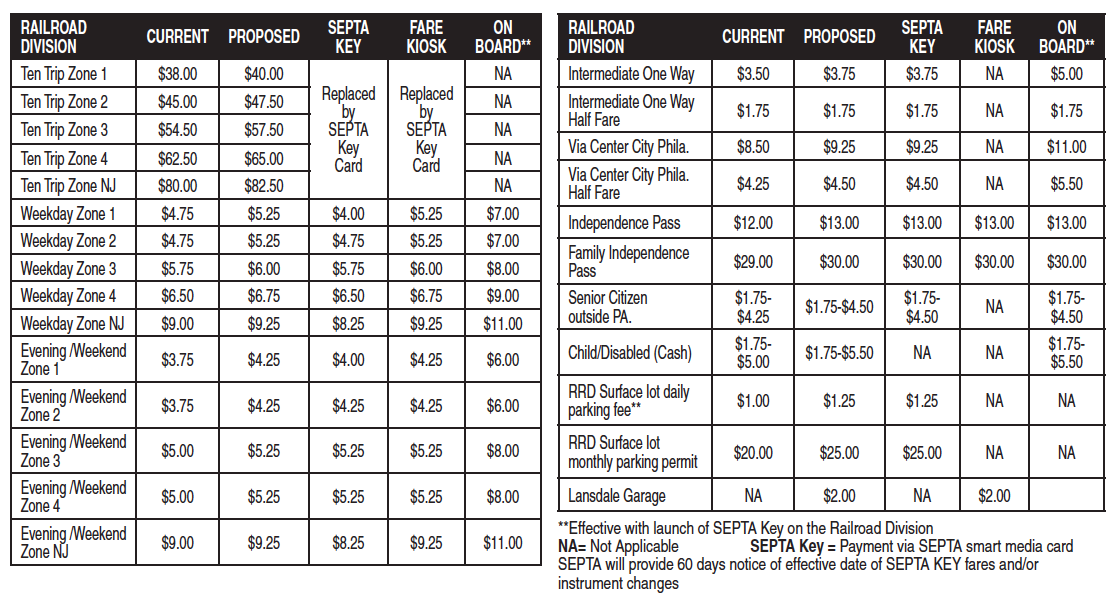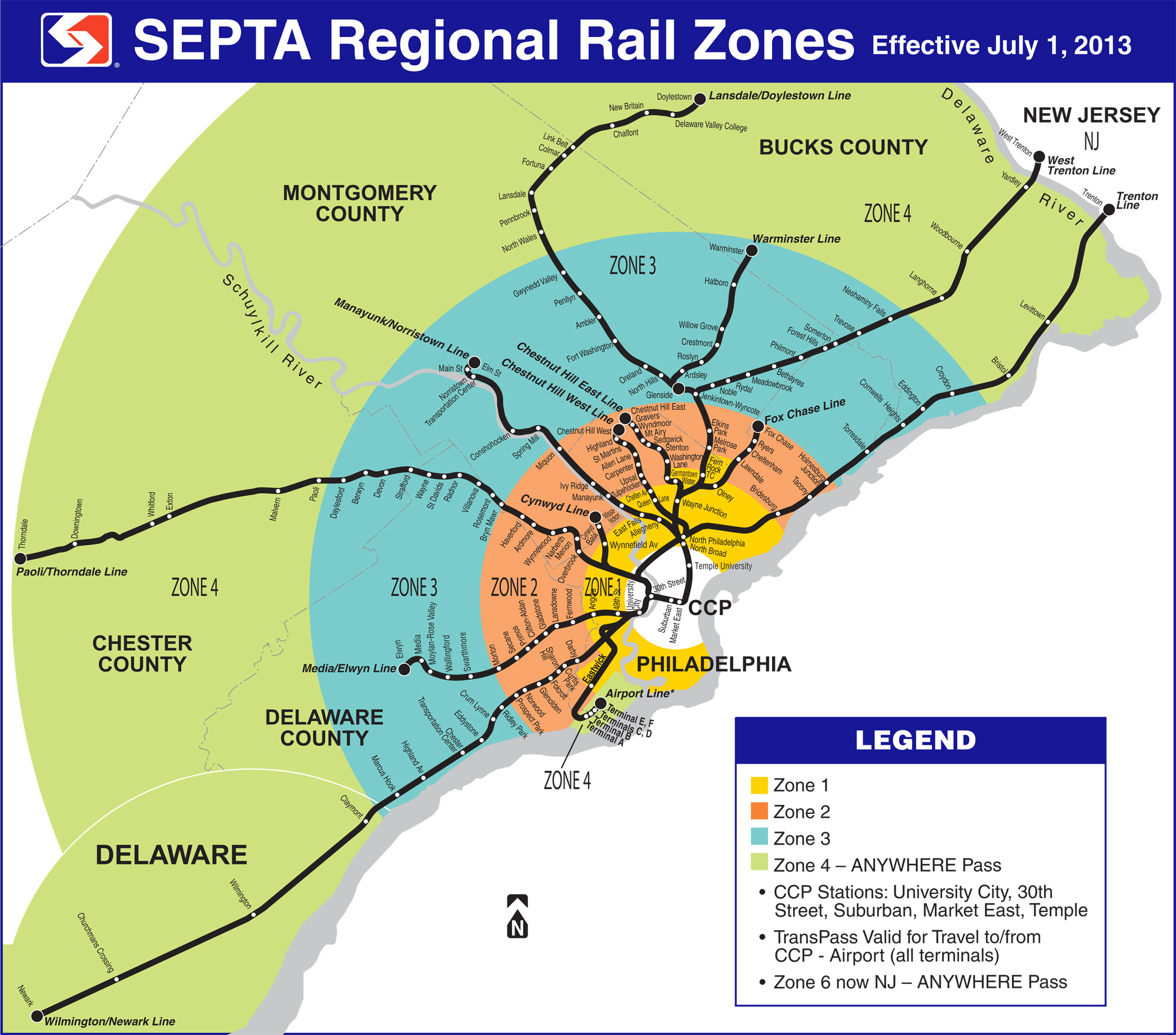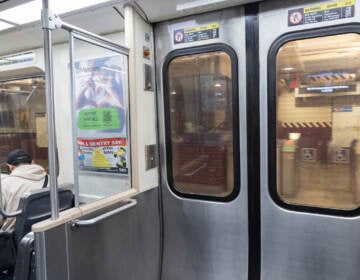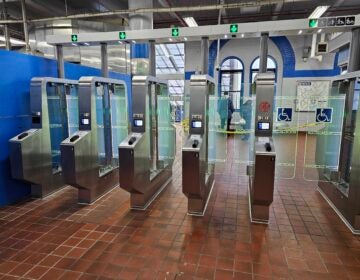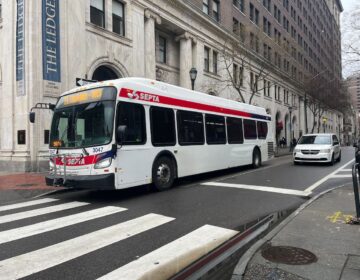SEPTA transit fares to go up starting July 1st
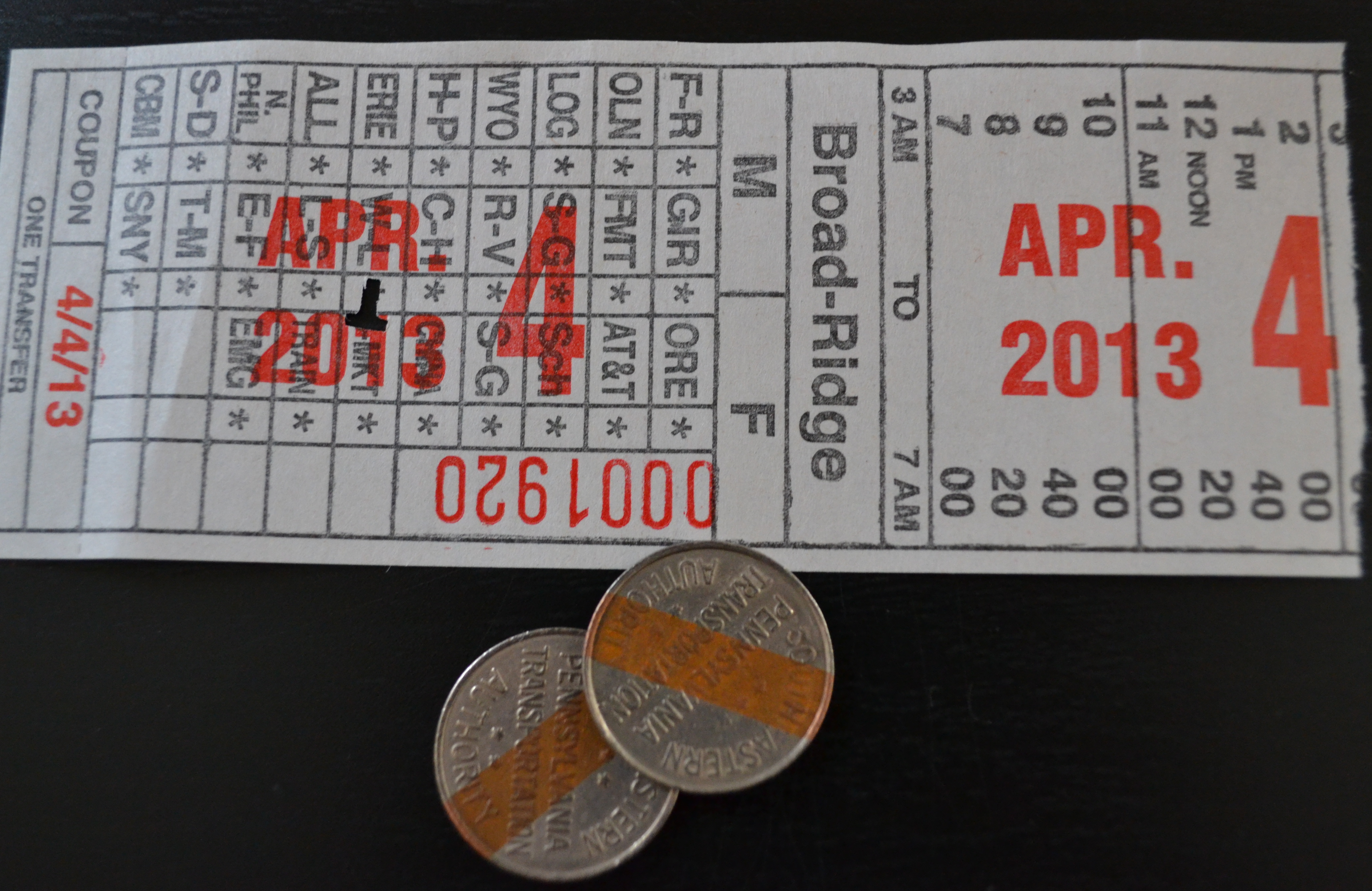
Starting July 1st, stepping onto SEPTA will set you back slightly more.
It’s SEPTA’s first fare increase since 2013. The authority planned to raise prices last year, but delayed the jump while it was still rolling out SEPTA Key. Now, as the new payment technology becomes widely available, the authority is ready to bump bus fares.
On SEPTA transit—buses, trolleys, subway and the El—cash fares will go from $2.25 to $2.50. Tokens will jump to $2 from $1.80, and SEPTA Key holders will see the same jump. Weekly transit passes will rise from $24 to $25.50, and monthly go up $5, to $96.
Regional Rail prices will also go up. A Monthly all-zone TrailPass will go up from $191 to $204. A one way Regional Rail trip to a Zone 3 stop from Center City will go from $6.50 to $6.75.
SEPTA plans to start SEPTA Key’s rollout on Regional Rail in April. To incentivize SEPTA Key usage, fares using SEPTA Key for a single trip will be 25-50 cents cheaper than buying a paper ticket in advance. And once SEPTA Key is fully implemented, SEPTA will also add a $1.75 to $2 premium for buying tickets on-board.
The news isn’t all bad for riders. SEPTA is simplifying its fare structure, removing the “premium fares” on the Norristown High Speed Line (NHSL) and bus routes 123, 124, 125 and 150. Rides on them will cost the same as a regular transit trip. That’s a reduction from $2.75 for the NHSL and from $3.75 on those suburban bus routes.
Despite the increases, SEPTA transit will remain cheaper than most of its peers. A subway trip costs $2.10 in Boston, $2.75 in New York City, and $2.15 in Washington D.C.
Prices will go up at a number of SEPTA-owned parking garages as well.
WHYY is your source for fact-based, in-depth journalism and information. As a nonprofit organization, we rely on financial support from readers like you. Please give today.



